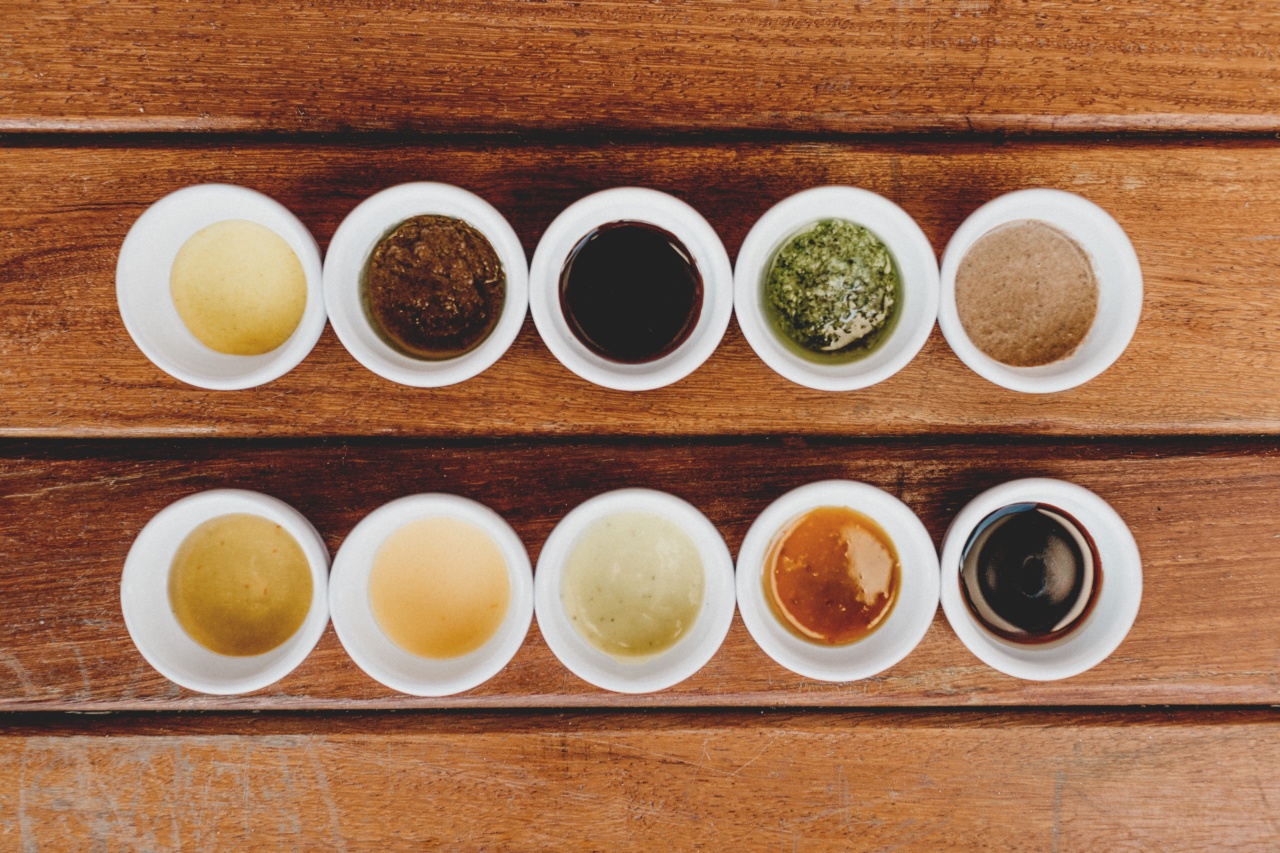Artery stenosis, also known as narrowing of the arteries, is a condition that occurs when the arteries that supply oxygen-rich blood to the heart become narrow due to the buildup of plaque.
This buildup of plaque can be caused by various factors, including high blood pressure, high cholesterol, smoking, and diabetes. While medication and surgical interventions can be helpful in managing artery stenosis, a healthy diet also plays a crucial role in maintaining cardiovascular health.
The Role of Diet in Managing Artery Stenosis
Choosing the right foods can help prevent and manage artery stenosis. Foods to include in your diet are:.
1. Fruits and Vegetables
Fruits and vegetables are rich in fiber, vitamins, minerals, and antioxidants, which are essential for maintaining cardiovascular health. These nutrients help reduce inflammation, which can contribute to the buildup of plaque in the arteries.
You can include a variety of fruits and vegetables in your diet such as leafy greens, berries, apples, oranges, carrots, and sweet potatoes.
2. Whole Grains
Whole grains such as brown rice, whole wheat bread, whole wheat pasta, and quinoa are excellent sources of fiber, vitamins, and minerals that can help manage artery stenosis.
These foods help reduce cholesterol levels in the blood, which can contribute to plaque buildup if left unchecked.
3. Lean Protein
Choosing lean protein sources such as chicken breast, fish, beans, and lentils can help maintain a healthy weight and reduce the risk of heart disease.
These protein sources provide essential nutrients without the added fat and cholesterol found in high-fat meats.
4. Nuts and Seeds
Nuts and seeds such as almonds, walnuts, flax seeds, and chia seeds are rich in healthy fats, fiber, and antioxidants that help reduce inflammation and prevent plaque buildup in the arteries.
It is important to consume these foods in moderation as they are high in calories.
5. Healthy Fats
Healthy fats such as olive oil, avocado, and fatty fish like salmon and tuna are good sources of omega-3 fatty acids that have been shown to reduce inflammation, lower cholesterol levels, and prevent heart disease.
6. Low-Fat Dairy Products
Low-fat dairy products such as skim milk, cottage cheese, and low-fat yogurt are good sources of protein, calcium, and vitamin D, which are essential for maintaining bone health and reducing the risk of heart disease.
Food Choices to Avoid
While certain foods can help manage artery stenosis, it is important to avoid foods that can contribute to plaque buildup and increase the risk of heart disease. These foods include:.
1. Saturated and Trans Fats
Foods high in saturated and trans fats such as red meat, butter, cheese, and processed foods can increase cholesterol levels in the blood and contribute to the buildup of plaque in the arteries.
2. High-Sodium Foods
High-sodium foods such as processed foods, fast foods, and canned foods can increase blood pressure, which can put extra strain on the heart.
3. Sugary Foods and Beverages
Sugary foods and beverages such as soda, candy, pastries, and desserts can contribute to obesity and increase the risk of heart disease.
Conclusion
A healthy diet can help manage artery stenosis by reducing inflammation, lowering cholesterol levels, and preventing plaque buildup in the arteries.
It is important to choose a variety of nutrient-dense foods and avoid foods that can contribute to heart disease. A healthy diet, along with other lifestyle changes such as regular exercise and stress management, can help maintain cardiovascular health and prevent complications associated with artery stenosis.



























